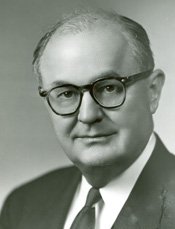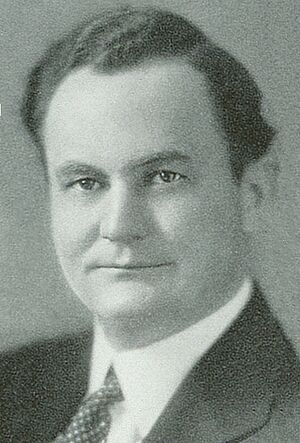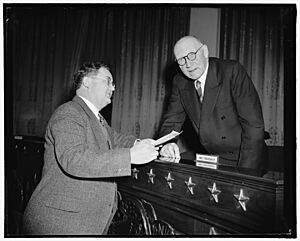Wright Patman facts for kids
Quick facts for kids
Wright Patman
|
|
|---|---|
 |
|
| Dean of the United States House of Representatives | |
| In office January 3, 1973 – March 7, 1976 |
|
| Preceded by | Emanuel Celler |
| Succeeded by | George H. Mahon |
| Chair of the House Banking Committee | |
| In office January 3, 1963 – January 3, 1975 |
|
| Preceded by | Brent Spence |
| Succeeded by | Henry S. Reuss |
| Chair of the House Small Business Committee | |
| In office January 3, 1955 – January 3, 1963 |
|
| Preceded by | William S. Hill |
| Succeeded by | Joe L. Evins |
| In office January 3, 1949 – January 3, 1953 |
|
| Preceded by | Walter C. Ploeser |
| Succeeded by | William S. Hill |
| Member of the U.S. House of Representatives from Texas's 1st district |
|
| In office March 4, 1929 – March 7, 1976 |
|
| Preceded by | Eugene Black |
| Succeeded by | Sam B. Hall |
| Member of the Texas House of Representatives from the 2nd district |
|
| In office January 11, 1921 – January 13, 1925 |
|
| Preceded by | J. D. Newton |
| Succeeded by | George Coody |
| Personal details | |
| Born |
John William Wright Patman
August 6, 1893 Hughes Springs, Texas, U.S. |
| Died | March 7, 1976 (aged 82) Bethesda, Maryland, U.S. |
| Political party | Democratic |
| Spouses |
Merle Connor
(m. 1919; died 1967)Pauline Tucker
(m. 1968) |
| Children | 4, including Bill |
| Education | Cumberland University (LLB) |
| Military service | |
| Allegiance | |
| Branch/service | |
| Years of service | 1917–1919 (active) 1919–? (Texas Army National Guard) |
| Battles/wars | World War I |
John William Wright Patman (born August 6, 1893 – died March 7, 1976) was an American politician. He was elected to the United States House of Representatives in 1928. Patman served for 24 terms, representing Texas's 1st congressional district from 1929 until 1976. He was a member of the Democratic Party. From 1973 to 1976, he was the Dean of the United States House of Representatives. This means he was the longest-serving member of the House at that time.
Patman grew up in Hughes Springs, Texas. After finishing his studies at Cumberland University, he became a lawyer in Hughes Springs. From 1916 to 1917, Patman worked as an assistant county attorney for Cass County, Texas. He then served in the United States Army during World War I from 1917 to 1919. After the war, Patman was elected to the Texas House of Representatives in 1920. He served two terms there before becoming a district attorney in Texas from 1924 to 1929.
In Congress, Patman was known for watching how money was spent. He often questioned big banks and the Federal Reserve, which is the central bank of the United States. He helped create the Robinson-Patman Act in 1935. This law was made to help small shops compete against larger chain stores. From 1963 to 1975, Patman led the United States House Committee on Banking and Currency. He served in Congress until he passed away in 1976. His son, Bill Patman, later served in the U.S. House from 1981 to 1985.
Contents
Wright Patman's Early Life
Wright Patman was born on August 6, 1893, near Hughes Springs in Cass County, Texas. His parents were John N. and Emma Patman. After graduating from Hughes Springs High School in 1912, he went to Cumberland University Law School in Lebanon, Tennessee. He earned his law degree in 1916 and was allowed to practice law in Texas that same year.
During World War I, Patman joined the United States Army as a private. He later became a first lieutenant and an officer in the Texas Army National Guard. He was part of the 144th Infantry Regiment, which was a unit of the 36th Division. He stayed in the National Guard for several years after the war ended.
Patman's Political Journey
Starting His Political Career
Patman was first elected to the Texas House of Representatives in 1920. He left the Texas House in 1924. That year, he was appointed as the district attorney for the fifth judicial district of Texas.
Wright Patman's Time in Congress
In 1928, Patman was elected to the House of Representatives. He represented Texas's 1st congressional district. In 1932, Patman introduced a bill to pay a bonus to World War I veterans right away. This was when the Bonus Army came to Washington to support the bill. Patman also supported the New Deal, which was a series of programs and reforms by President Franklin D. Roosevelt.
In January 1932, Patman led an effort to remove Treasury Secretary Andrew Mellon from his job. This led to Mellon resigning the next month.
In 1935, Patman supported independent retail shops. These shops were trying to stop the growth of large chain stores. Patman in the House and Joseph Taylor Robinson in the United States Senate sponsored the 1936 Robinson-Patman Act. This law aimed to protect small, independent stores by preventing big manufacturers or retailers from controlling the wholesale market.
Patman's Role in the Watergate Inquiry
Wright Patman's committee played an important part in the early days of the Watergate scandal. This scandal eventually led to President Nixon leaving office. Patman's committee investigated the money found on the people arrested during the Watergate burglaries. They thought the money could connect them directly to CREEP, which was the president's re-election committee.
The White House tried to stop Patman's investigation in 1972. However, Patman's work helped show the "money trail." This information was reported in The Washington Post. It helped lead to the creation of the Ervin Senate Select Committee on Watergate in April 1973.
Losing His Committee Leadership
In 1975, younger members of Congress voted Patman out of his position as Chairman of the Banking committee. This was part of a change against the "seniority system." This system meant that the longest-serving members often became committee leaders. Patman was replaced by Henry S. Reuss. The main reason given for this change was concern about Patman's age and how effective he was.
Wright Patman's Family Life
In 1919, Patman married Merle Connor. She passed away in 1967. They had four children together, including Bill Patman. Bill Patman later served in the U.S. House from 1981 to 1985. Wright Patman married again in 1968 to Pauline Tucker.
Patman died from pneumonia in Bethesda, Maryland, on March 7, 1976. He was buried at Hillcrest Cemetery in Texarkana. His funeral was a very important event in the town's history.
Wright Patman's Legacy
Patman is seen as a liberal and populist politician. He helped bring federal jobs and projects to his district. Before this, farming was the main way people made a living there.
The Wright Patman Congressional Federal Credit Union in Washington, D.C., is named after him. This credit union helps elected and former members of the House and their staff with their banking needs. Also, Wright Patman Lake and Wright Patman Dam in Northeast Texas are named in his honor.
Wright Patman in Fiction
In the alternate history novel Settling Accounts: In at the Death by Harry Turtledove, Wright Patman is a character. In this story, he is the Governor of Texas during a fictional Second Great War. Towards the end of the war, he declares Texas an independent nation. He becomes its President to make peace with the United States.
See also
- List of United States Congress members who died in office (1950–99)
 | William L. Dawson |
 | W. E. B. Du Bois |
 | Harry Belafonte |



